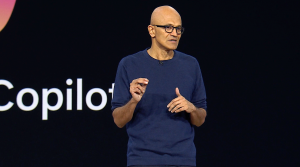The FTC Alleges Intel Engaged in Systematic Anticompetitive Campaigns
![]() The US Federal Trade Commission today finally issued a statement regarding their ongoing investigation of alleged anticompetitive practices over at Intel, on the claim that they are stifling innovation:
The US Federal Trade Commission today finally issued a statement regarding their ongoing investigation of alleged anticompetitive practices over at Intel, on the claim that they are stifling innovation:
The Federal Trade Commission today sued Intel Corp., the world’s leading computer chip maker, charging that the company has illegally used its dominant market position for a decade to stifle competition and strengthen its monopoly.
…the FTC alleges that Intel has waged a systematic campaign to shut out rivals’ competing microchips by cutting off their access to the marketplace. In the process, Intel deprived consumers of choice and innovation in the microchips that comprise the computers’ central processing unit, or CPU. These chips are critical components that often are referred to as the “brains” of a computer.
…Intel carried out its anticompetitive campaign using threats and rewards aimed at the world’s largest computer manufacturers, including Dell, Hewlett-Packard, and IBM, to coerce them not to buy rival computer CPU chips. Intel also used this practice, known as exclusive or restrictive dealing, to prevent computer makers from marketing any machines with non-Intel computer chips.
A fuller list of allegations is available on the posted announcement. I puzzled over this one today, before I tapped out a reply. I’m somewhat sympathetic to Intel, because their Software Developer Network was one of the inaugural sponsors of SiliconANGLE, and I was able to get to know a number of folks on that team, and I generally like what they’re doing over there.
![]() The folks on the Software Developer Network team are in general pretty social media savvy, and understand principles like open-ness and collaboration. In that respect, their ethos seem to be in line with mine.
The folks on the Software Developer Network team are in general pretty social media savvy, and understand principles like open-ness and collaboration. In that respect, their ethos seem to be in line with mine.
Of course, I don’t confuse the software side with what’s going on over at the hardware side, which is part of an overall highly cutthroat industry, unlike anything we bloggers deal with (as Mike Arrington recently found out). Is what the FTC alleges truly going on? I don’t know if there’s really any way I could tell you.
I talked to John Furrier today about it, since he’s a longer history with Intel than most I know.
The corporate side is very tight lipped and have been for many years,” said John. “The corporate PR team has been anything but collaborative in fact acting strange over the past two years.”
He also noted that Intel is a player that competes with much more than other chipmakers.
“They have high quality people over there. From the data that I have it appears that they are more desperate then evil,” John told me. “The mega-trend of cloud computing and mobile is absolutely disrupting their existing business. Some say that Intel did not position itself well for this paradigm, despite having displayed technology long ago that is now mainstream in today’s market.”
I’ve put out some feelers with folks I know who are, in general, experts on this antitrust business. The FTC has been making their case, and Intel has not been particularly forthcoming in the rejoinders. Usually I’ve got fairly strong an informed opinions on this, but in the absence of actual data or evidence in this case, I can’t come out strongly for or against Intel.
A message from John Furrier, co-founder of SiliconANGLE:
Your vote of support is important to us and it helps us keep the content FREE.
One click below supports our mission to provide free, deep, and relevant content.
Join our community on YouTube
Join the community that includes more than 15,000 #CubeAlumni experts, including Amazon.com CEO Andy Jassy, Dell Technologies founder and CEO Michael Dell, Intel CEO Pat Gelsinger, and many more luminaries and experts.
THANK YOU













